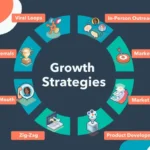Students who are passionate about science should consider pursuing a BSc course. This degree broadens career options, offers a high salary, and allows for research.
The BSc course is typically three to four years long, depending on the country you are studying in. To improve your chances of success, try to keep distractions at bay and study consistently.
Applied Learning
Applied learning allows students to use their classroom-based knowledge in new practical contexts. This can be done through the development of hands-on projects, real-world settings and internships. Alternatively, it may involve applying academic skills to work on co-curricular activities that are part of a course or program of study (for example, fieldwork or lab activities).
It requires that teachers plan learning outcomes that span the cognitive domains and that they include opportunities for higher-order thinking skills. In addition, they need to ensure that the content presented is relevant to the lives of their students and that it addresses the needs of racial, linguistic, social and neurodivergent groups.
A BSc course provides a solid foundation in scientific principles that prepares students for many different careers. Those who choose to focus on biology, chemistry, physics or computer science can find jobs in academia, research and industry. Those who opt for nursing, agriculture or horticulture will have more specific employment options, but they can also pursue advanced studies and research. To apply for a BSc degree, students should check the eligibility criteria and preparation for admissions at their chosen college or university.
Problem-Solving Skills
Problem-solving skills are key for students to have in any field, and these courses give them an opportunity to apply their knowledge to real-world issues. They’ll learn how to assess, evaluate and implement potential solutions in different situations, giving them the ability to tackle any challenge they encounter in their career or personal life.
These kinds of problems are more complex, and require students to make connections between concepts, rather than just rotely applying the physics or math they learned in class. They also need to be creative in finding solutions, and this can be done through activities such as constructing problem-solving trees where each branch represents one solution path and the leaves represent possible options (Jonassen, 2000).
Faculty members can help improve their students’ problem-solving skills by increasing assignment transparency and encouraging them to work with peers. For example, Sheridan has created a Problem-Solving Course Design Institute that gives faculty the chance to participate in a two-day workshop with intergenerational student-faculty teams to (re)design assignments that engage students in the problem-solving process.
Communication Skills
A BSc (Bachelor of Science) is an undergraduate degree that provides students with a solid foundation in scientific principles. It is also a great preparation for advanced degrees and careers.
BSc courses are offered by universities and colleges worldwide. The admission process varies, but typically includes completing a 10+2 education with science subjects such as physics, chemistry, and mathematics. Applicants must also pass an entrance exam and have a minimum percentage of marks.
BSc graduates can work in various industries, including healthcare, research and development, environmental sciences, data analysis, and more. They can also choose to teach as professors or lecturers at schools, colleges, and universities. Some government organizations, such as the Indian Space Research Organization and Defense Research and Development Organisation, also hire BSc graduates. BSc graduates can also pursue higher studies and earn a Master’s degree in their field of study. They can also use their knowledge to help improve the world around them. This versatility makes a BSc degree an excellent choice for students who want to make a difference in the world.
Teamwork Skills
BSc courses provide students with a solid scientific foundation, making them well-equipped to work in a wide range of science-related fields. They can also serve as a stepping stone to further education and research, including earning a master’s degree or even a PhD.
One of the most important skills that a BSc student develops during their studies is how to work with others. This includes being able to collaborate with colleagues and peers from diverse backgrounds, as well as working effectively in an interdisciplinary setting. These skills are critical in a modern workplace, where teamwork is an essential part of many jobs.
Moreover, these courses encourage the development of critical thinking. They encourage students to be aware of their own biases and perspectives, and help them to understand the limitations of current scientific knowledge. This allows them to make better informed decisions in their professional lives and in the community at large. They can also become more effective in their job searches, as employers will be able to see that they have the skills and knowledge needed for success in the workforce.
Leadership Skills
BSC courses can lead to a number of different careers. Many students choose to further their studies and pursue a masters degree in the field of their choice. Others find jobs in research labs, teaching or in the public sector. Some people decide to move into management and become leaders in their own right.
Leadership training can be valuable for professionals in any role or career stage. In fact, 94 percent of employees say they would stay with their company longer if it invested in their professional development.
A BSc is a three-year undergraduate programme that prepares students with a broad knowledge of science. The course includes a wide range of subjects from physics, biology and chemistry to economics, mathematics and astronomy. BSc graduates can pursue careers in research, engineering and a range of other fields. With government initiatives such as Digital India and Skill India, the demand for science graduates is growing. Students can also opt to pursue higher studies and take up a PhD in the field of their choice. The opportunities are limitless for science graduates in this country.

